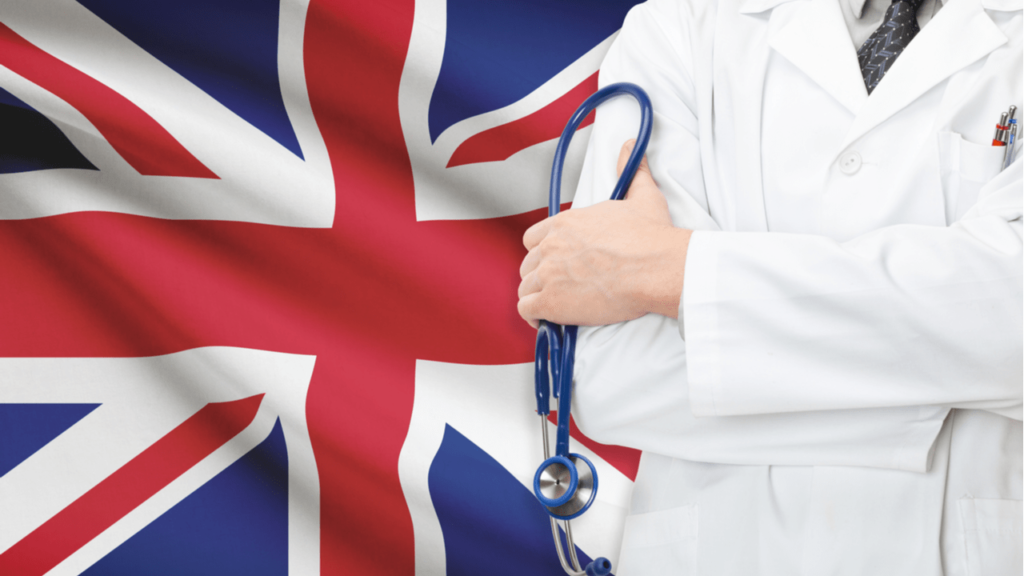Studying to become a doctor in the UK without paying is hard because everyone has to pay fees. But there are ways to help. You can look for scholarships and grants from universities or governments. Some countries give money to students studying abroad, especially if they’re learning important things like medicine.
You can also try work-study programs, but there might not be many jobs for students from other countries. Some places offer scholarships where you get money if you promise to go back home and work after you finish studying. Some universities also offer special help for really good students.
If studying in the UK is too expensive, you can think about studying in your own country or in places where it costs less. Later, you can come to the UK for more training if you want. Remember to ask for help and do lots of research before deciding.
What are the challenges of studying MBBS in the UK?

Studying MBBS (Bachelor of Medicine, Bachelor of Surgery) in the UK can be an enriching experience, but it also comes with its own set of challenges:
Competitive Entry
Applicants must demonstrate not only strong academic performance but also exceptional personal qualities, such as leadership, teamwork, and dedication to patient care.
Admission criteria often include interviews, personal statements, and references, which require careful preparation and presentation of one’s motivations and suitability for a career in medicine.
International students may face additional hurdles, such as unfamiliarity with the UK education system and cultural differences in the application process.
High Tuition Fees
The cost of tuition for international students can vary widely between medical schools and may increase annually.
Scholarships and financial aid options for international students may be limited compared to those available to domestic students, requiring students to seek alternative funding sources or consider student loans.
Cost of Living
In addition to tuition fees, international students must budget for accommodation, food, transportation, healthcare, and other living expenses.
Living costs can vary significantly depending on the location of the medical school, with major cities generally being more expensive than rural areas.
International students may need to adapt their lifestyle and spending habits to cope with the higher cost of living in the UK.
Intense Curriculum
The MBBS curriculum is comprehensive and demanding, covering a wide range of medical sciences, clinical skills, and professional development.
Students are expected to engage in self-directed study, attend lectures and seminars, participate in laboratory sessions, and complete clinical placements.
Balancing the academic workload with personal commitments and extracurricular activities requires effective time management and organizational skills.
Clinical Placements
Securing clinical placements can be competitive, especially for popular specialties or prestigious hospitals.
Students may need to demonstrate their clinical competence, professionalism, and interpersonal skills to secure placement opportunities.
Travel and accommodation arrangements for clinical rotations outside of the medical school’s location can add logistical complexity and expenses.
Adapting to the Healthcare System
International students must familiarize themselves with the structure and function of the UK healthcare system, including the roles of healthcare professionals, patient pathways, and clinical governance.
Differences in healthcare practices, guidelines, and cultural norms may require adaptation and sensitivity to ensure effective patient care and communication.
Clinical placements offer valuable opportunities for international students to observe and participate in the UK healthcare system firsthand.
Work-Life Balance
Medical education demands a significant time commitment, often leaving little time for relaxation, hobbies, or social activities.
Maintaining a healthy work-life balance is essential for preventing burnout and maintaining mental and physical well-being.
Strategies such as time management, prioritization, delegation, and seeking support from peers, mentors, and support services can help students manage their workload and maintain balance.
Language Proficiency:
International students whose first language is not English may face challenges in understanding and communicating medical terminology, patient histories, and treatment plans.
Language proficiency exams such as the International English Language
Testing System (IELTS) or Test of English as a Foreign Language (TOEFL) may be required for admission.
Engaging in language courses, practice sessions, and immersive experiences can help international students improve their English language skills and adapt to the communication expectations of medical practice in the UK.
How can one study MBBS in the UK for free?

Studying MBBS in the UK for free as an international student is challenging due to the high tuition fees charged by medical schools. However, there are some avenues through which students can potentially reduce or eliminate the cost of their medical education:
Scholarships and Bursaries
- Medical schools in the UK may offer scholarships and bursaries specifically designed for international students. These financial awards are typically based on academic excellence, leadership potential, extracurricular achievements, and sometimes financial need.
- Scholarships may cover partial or full tuition fees, and some may also provide additional allowances for accommodation, textbooks, or living expenses.
- Students should research the scholarship opportunities available at each medical school they are interested in applying to and carefully review the eligibility criteria and application deadlines.
Government Sponsorship
- Some governments or governmental organizations in students’ home countries sponsor students to study abroad, including in the UK.
- Government-sponsored scholarships often cover tuition fees, living expenses, travel costs, and sometimes additional allowances for health insurance or academic materials.
- Students should inquire with relevant government agencies or embassies in their home countries about available sponsorship programs for studying medicine in the UK and follow the application procedures outlined by the sponsoring organization.
External Scholarships and Grants
- International students can explore external scholarship opportunities offered by non-profit organizations, foundations, corporations, or private donors.
- These scholarships may be targeted towards students from specific regions, underrepresented backgrounds, or those pursuing studies in certain fields such as medicine.
- Students can search for scholarship databases, online platforms, or specialized websites that list international scholarship opportunities and carefully review the eligibility requirements and application instructions for each scholarship.
Part-Time Work and Financial Aid
- International students studying in the UK are allowed to work part-time during term time and full-time during vacation periods, subject to certain restrictions imposed by their visa status.
- Part-time work can help students supplement their income and cover living expenses, although it may not fully cover tuition fees.
- Some medical schools offer financial aid programs, emergency funds, or hardship grants to support students facing unexpected financial difficulties or unforeseen circumstances during their studies.
Loan Programs
- International students may be eligible for student loans or educational financing options offered by financial institutions in their home countries or by international organizations.
- These loans can be used to cover tuition fees, living expenses, travel costs, and other educational expenses incurred while studying abroad.
- Students should carefully consider the terms and conditions of student loans, including interest rates, repayment schedules, and eligibility criteria, before applying for educational financing.
Exchange Programs
- Some universities participate in exchange programs or partnerships with institutions in other countries, allowing students to study abroad while paying tuition fees at their home institution.
- Exchange programs may involve reciprocal agreements between universities, enabling students to enroll in courses or clinical placements at partner institutions without incurring additional tuition fees.
- Students should inquire with their home institution’s international office or study abroad advisor about available exchange opportunities for medical education in the UK and explore the application process and eligibility requirements.
Final Words
If you want to become a doctor in the UK but don’t have much money, there are ways to help. You can get free money called scholarships or grants. Some countries also give money to their students who study medicine in other countries. Sometimes, you can work a bit while you study to earn money. If you’re really good at studying, universities might help you too. If it’s too expensive to study in the UK, you can study in your own country or somewhere cheaper first.
Later, if you want, you can come to the UK for more training. Just remember, it’s important to ask for help and do your research before making any big decisions.
